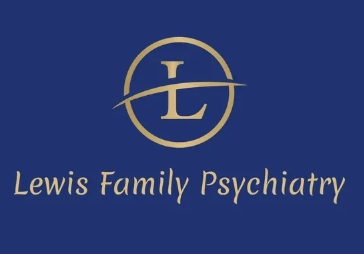Is Insomnia Keeping You Up? 4 Reasons Why
Problems with falling asleep, staying asleep, or waking up too early can wreak havoc on your physical and mental health. Determining the cause is critical to getting the right treatment plan in place. Read on to learn more.
Falling asleep should be as easy as counting sheep, but for the more than 1 in 10 Americans diagnosed with chronic insomnia, it's anything but. While the reasons are varied and depend on the individual, finding and addressing the cause can help lead to a better night's sleep.
Getting crucial mental, emotional, and behavioral health care in the state of Florida has never been easier or more convenient, thanks to Lewis Family Psychiatry's online telemedicine platform.
Whether you or a loved one is struggling with insomnia, depression, anxiety, or another mental health challenge, our highly skilled psychiatric nurse practitioners conduct assessments, determine diagnoses, and create a customized treatment plan to meet your needs.
Insomnia
Most adults need 7-9 hours of sleep, and when they don't get it, everything from their energy levels and mood to their health, job performance, and quality of life can suffer.
While insomnia is a common sleep disorder, it can come in different forms. Some people have trouble falling asleep or staying asleep, while others wake up too early and can't get back to sleep.
Causes
There are a number of reasons insomnia can strike, including:
Sleep schedule changes
Disrupting the circadian rhythms that control your internal clock's sleep and wake times can result in insomnia. Jet lag from traveling or late, early, or frequently changing work shifts can cause sleep disruptions.
Bad habits
For some people, behavior choices can lead to sleep issues. This covers a wide range of actions from inconsistent sleep and wake times, napping, being too active before bedtime, using electronics before sleep, and working or watching TV in bed.
Eating too much before going to sleep can cause discomfort and heartburn. Consuming caffeine and nicotine too late in the day can lead to issues with falling asleep.
Alcohol may ease the onset of sleep but prevents deeper sleep and can result in waking in the middle of the night. Stress and worrying can also contribute to sleep problems.
Health issues
A number of health conditions can cause sleep problems, such as chronic pain, cancer, heart disease, asthma, gastroesophageal reflux disease (GERD), Alzheimer's disease, and more. Sleep apnea and restless legs syndrome also disrupt a peaceful night of rest.
Prescription medications like antidepressants and drugs used for asthma or blood pressure can cause insomnia, as well as over-the-counter products that contain caffeine and other stimulants like some pain, allergy, and cold medicines and weight-loss drugs.
Mental health challenges
Depression, anxiety, or psychological stress are related to about half of insomnia cases. Obsessive-compulsive disorder, panic attacks during sleep, and nightmares from posttraumatic stress disorder (PTSD) can also result in poor sleep.
No matter the cause, getting treatment for insomnia is important for your physical and mental well-being. If you're suffering from disrupted sleep, we can help you figure out the underlying cause and create a personalized treatment plan of ways to encourage better sleep hygiene.


